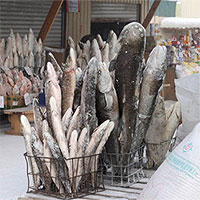In theory, humans can eat grass because the grass is non-toxic and edible. However, in reality, this food source is not suitable for human consumption. However, despite being an abundant source of food, humans still cannot eat this plant.

Although grass is an abundant source of food, humans still cannot eat this plant.
There are 2 main reasons for that problem. The first is that it is very difficult for the human stomach to digest raw leaves and grasses. Meanwhile, animals like cows have a specialized stomach with four compartments to help them digest grass, which takes place in a process called rumination . We humans don’t have such stomachs. That means the grass is not digested in our intestines. If we eat a lot, we will most likely vomit or have diarrhea. Eat less, we will probably be fine. In addition, eating grass is not good for human teeth. Grass contains a lot of silica, the main ingredient in many rocks including quartz and sandstone.
Besides digestive problems, the second problem is chewing to soften grass, grass is also harmful to human teeth. Grass contains a lot of silicon . Silicon wears down teeth very quickly. Herbivores have teeth that grow very quickly to replace the surface teeth worn by chewing grass, but humans do not.
According to How stuff works, it’s interesting that there was a period in human history when people were able to digest grass. That was about 3.5 million years ago. Our distant, hairier cousins, the Australopithecus bahrelghazali , had teeth well suited to herbivorous duties.

